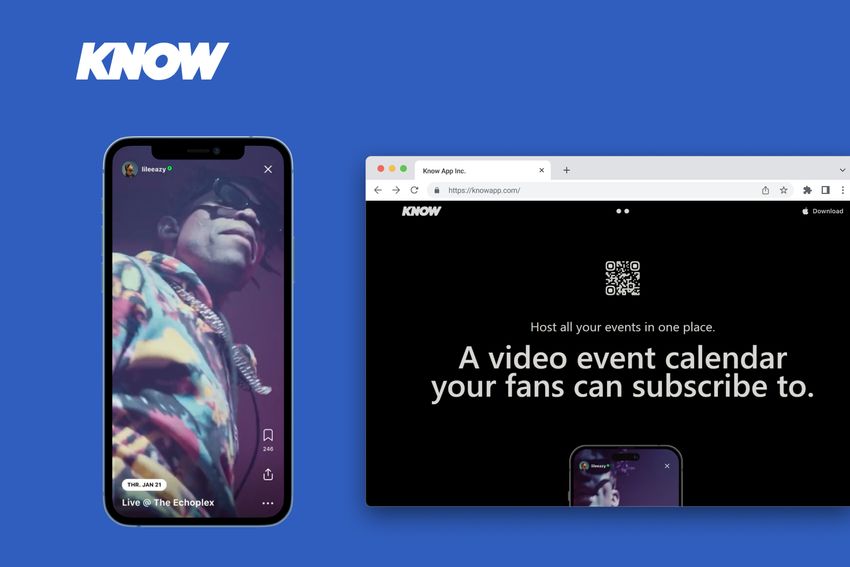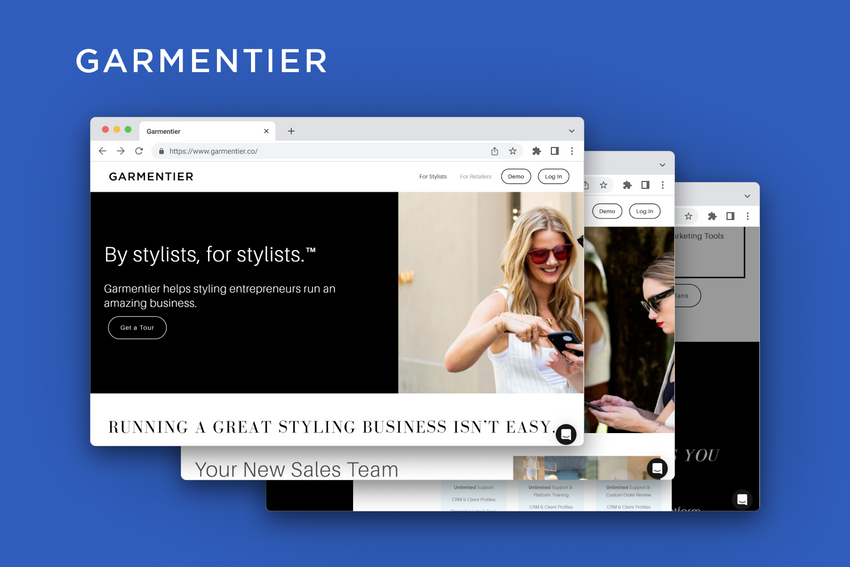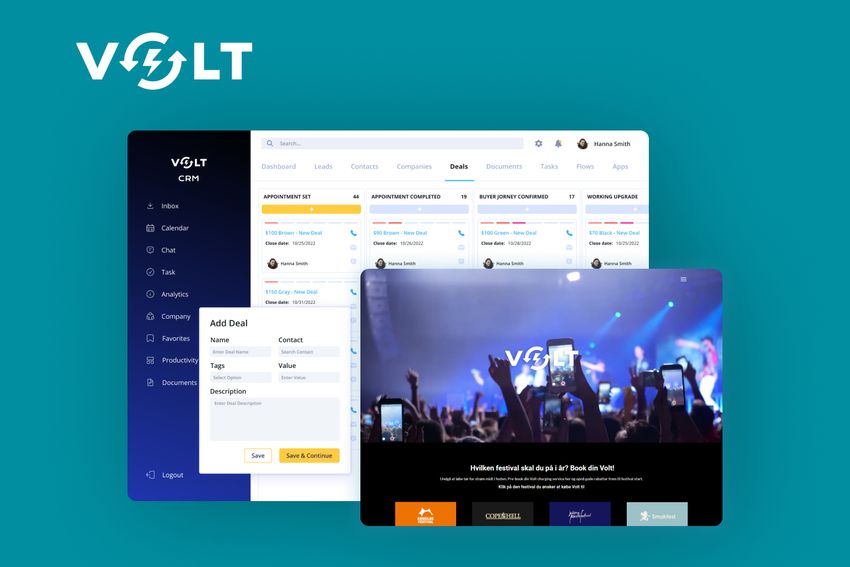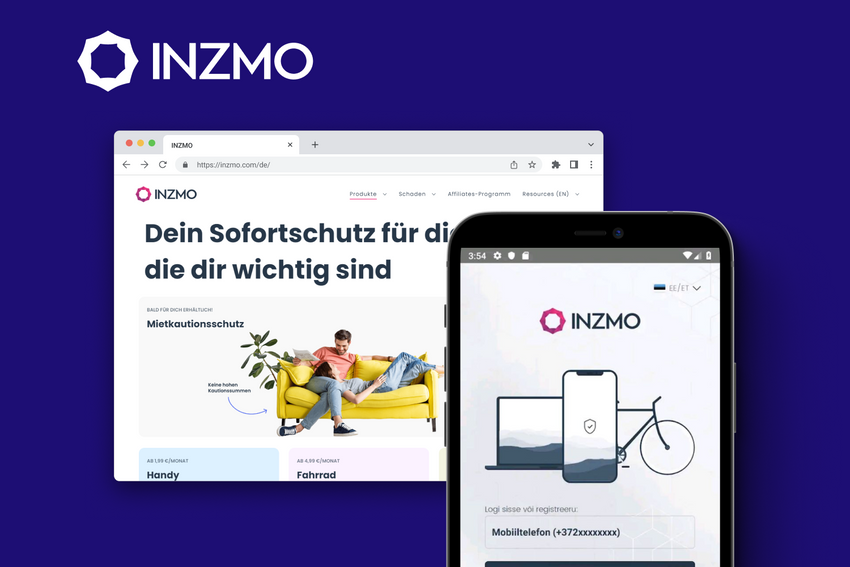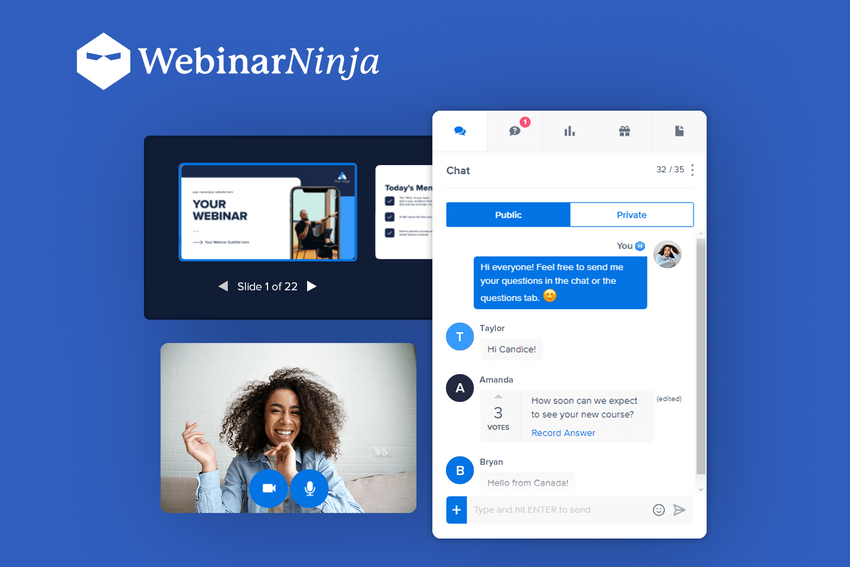Micro SaaS Applications For Small Business: Best SaaS Ideas to Build Product in 2025
15 profitable SaaS product ideas to realize in 2025.
Is micro-SaaS profitable? How do I find good micro-SaaS ideas for my startup? If you are asking yourself these questions, our article is for you – we collected the most interesting and lucrative micro-SaaS ideas to implement in different industries, including eCommerce, Real estate, Finance, Healthcare, HR, Marketing, and more.
Micro-SaaS and industry-specific solutions are trending and rapidly developing. According to some predictions, 85% of corporate software will be SaaS-based by 2025. There are a lot of benefits that we will cover alongside the best ideas for building such a solution.
What is Micro-SaaS?
Micro-SaaS, or micro Software as a Service, is a term that has gained prominence in the realm of software development and digital entrepreneurship. Unlike conventional SaaS businesses which target a broad audience and offer extensive functionalities, micro-SaaS solutions flourish by addressing specific pain points or niche requirements, often with smaller teams and tighter budgets.
To paint a clearer picture, let’s look at some of the solution examples:
- Time Management Solutions: Applications designed to help freelancers, remote workers, or specific jobs like lawyers or consultants manage their hours and projects more efficiently.
- Workflow Automation Software: Tools aimed at automating repetitive tasks within a particular niche, such as automating patient appointment booking for dental clinics.
- Analytics Tools: Software that provides specific analytical insights, such as analyzing user engagement for mobile game developers or tracking foot traffic in boutique stores.
- Content Management Apps: Platforms that cater to niche content needs, like managing portfolios for graphic designers or curating recipes for gourmet chefs.
- Collaboration Tools for a Niche Market: Say, a communication tool designed specifically for architects where they can discuss and modify building plans in real time.
Thus, the beauty of these solutions is in its simplicity and precision. Instead of casting a wide net and striving for a huge number of users, micro-SaaS zeroes in on a defined audience and solves their unique challenges.
It can be clearly seen with some popular micro-SaaS app examples. Let’s take a look at Buffer - it’s a micro-SaaS app for small businesses, designed to manage accounts in social networks. It allows marketing teams to schedule posts to LinkedIn, Twitter, Facebook, Instagram, and Pinterest, and then analyze the results and engage with their community.
The other bright example - Calendly - is a modern micro-SaaS platform for SMBs that helps to schedule calls, track project time, and report sick days.
Micro-SaaS ns SaaS Solutions: Key differences
While SaaS (Software as a Service) and micro-SaaS might seem closely related at a glance, they operate on distinct paradigms. Below, we’ve enumerated some of the key differences that set them apart.
While they both have distinct advantages, they cater to different needs and audiences. The choice between the two often boils down to the problem being addressed and the scale at which a solution is intended.
3 Types Of SaaS
SaaS can be classified according to the range of industries they’re used for. Today, such apps are a common practice in practically every sphere, from FinTech and e-commerce to education. However, according to how many sectors one platform serves, three types of SaaS tools for business are distinguished: horizontal, vertical, and micro.
Horizontal SaaS
The horizontal SaaS business model provides services for a wide range of customers from different fields. Moreover, the horizontal models are able to expand the number of functionalities provided to companies, if they need them, and even the array of industries they cater to. The two most common examples are Salesforce and Microsoft.
Vertical SaaS
Vertical SaaS tools are aimed at a narrower audience and serve their specific needs. For example, it can be a patient management platform targeted at clinics and healthcare institutions.
Both have their own benefits. For instance, those who go for vertical development believe that it’s easier to focus on the standards and demands of a particular sector to create an exceptional platform.
At the same time, the ones who resorted to building horizontal applications claim that businesses from different spheres share more common features than distinctive ones. So concentrating on them is a much better idea.
Micro SaaS
Products created by a small team of engineers and targeted to serve small companies in a narrow industry are usually referred to as "micro SaaS". This type resembles the vertical model and can be considered its subtype.
On the whole, such apps help solve even more specific problems. Let's say that a vertical SaaS is built for the education sector in general, while a micro SaaS app for the same field is built for the needs of high school students.
As we’ve mentioned, the SaaS market is dominated by several big players. But it doesn’t mean that you have to compete with them, given that it’s not a level playing field, especially if you’re only at the beginning of your journey.
Instead, you may complement their products with your micro SaaS solutions. These are not only apps for CRM or workforce management that will be described below, but micro SaaS may take the form of plugins or add-ons. Just like Grammarly, which works in browsers and checks the spelling.
Selecting the right type is, undoubtedly, of great significance. But the key to an excellent custom web application is the right team, which, in turn, will help you choose the type that is most compatible with your business needs.
Having learned the SaaS types, you’ve probably formed your thoughts about your future product. Now, don’t you think that it’s a good time to explore some trends that may serve as a prompt for your unique tool. Here we go!
Hot SaaS Trends
It’s predicted that by 2028, the value of the SaaS market will reach more than $720 billion. This means that SaaS products will only grow in popularity in the next several years. The rapid growth implies the rise of innovation and novelty at the same speed. Here are some of the SaaS trends expected to permeate the market in the following years.
Identity-Access Management Automation For SaaS
One of the major drawbacks of SaaS was the insufficient level of safety. One of the reasons was that such solutions are usually multi-vendor.
But IT engineers came up with the solution: Identity and Access Management. This system defines the way users can access information and the level of their access to different layers of data within a company.
Once the system is implemented correctly, you and your users can be sure that their data is kept safe and protected against unauthorized users and hackers.
Artificial intelligence (AI) and Machine Learning (ML)
AI and ML are ubiquitous. These technologies are becoming more and more sublime for advancing all kinds of software, including SaaS products. Onerous and redundant tasks automation, forecasting customers’ purchases, and processing bulk of data are only some of the tasks AI and ML can tackle.
For example, there is a SaaS for e-Commerce, that prevents fraud in the payment process with the help of Artificial Intelligence and Machine Learning technologies. It allows for proxy and geolocation detection to help a company reject or accept a transaction. Many e-commerce SaaS are integrated with AI-driven chatbots to personalize data and effectively help customers.
Integrations
SaaS products will be integrated with other apps located in the cloud or even on-premises software so that users don’t need to jump from one app to another but can leverage the functionality of several products in one place.
For example, an e-Commerce SaaS platform can be integrated with CRM and content management tools, which will eventually result in a more sophisticated marketing strategy and, of course, an exceptional user experience.
Vertical SaaS
The type of products tailored to the needs of a niche segment of the audience will probably continue to rise in popularity. It supports the fact that the number of searches for vertical SaaS solutions increased by 28% from 2018 to 2023.
So maybe investment in building SaaS applications for a specific niche market is your key to success?
SaaS-based No-Code Platforms
The blame for the rise of no-code platforms should be put on the global pandemic. This period made many companies face the problem of a lack of highly skilled testers, and this is when no-code platforms received their long-desired recognition.
Now, no-code platforms are adopted by many companies as they can be operated by non-tech savvies. In the context of testing, no-code platforms are particularly transformative. They offer a simplified approach to creating and executing tests, which previously required considerable coding skills. According to some forecasts, in the near future, the new coding technology is expected to replace some IT engineers involved in testing.
Blockchain SaaS
One more pillar of cybersecurity can be provided by blockchain technology. Without getting into the intricacies, it is basically the data coded with the help of cryptography and put in chronological order.
Initially, the technology was associated with cryptocurrencies, but it later revealed its full potential. Today, blockchain keeps the personal data of customers and information about transactions coded with cryptography. The encrypted data itself is packaged into a number of blocks.
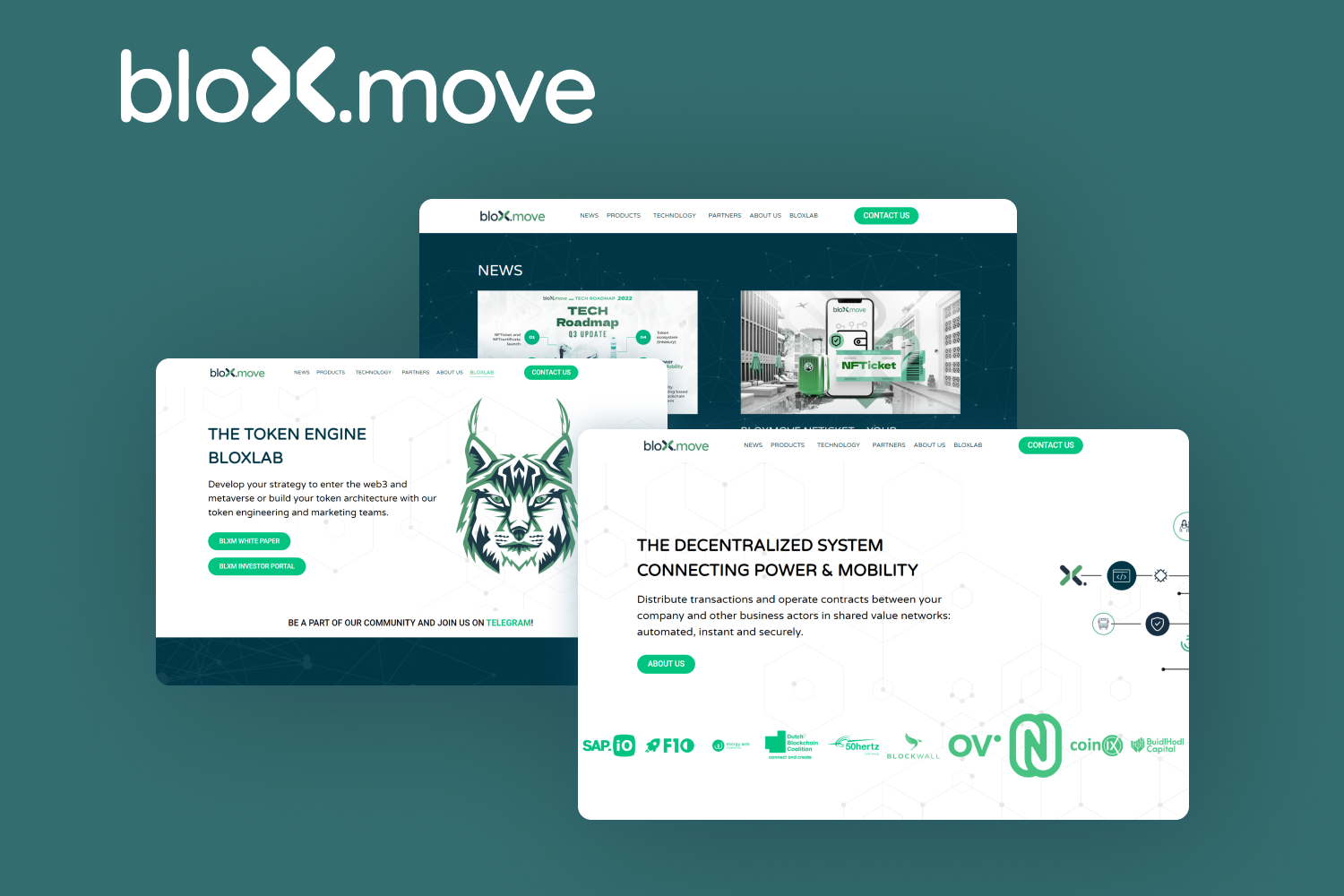
Consequently, the more blocks you have, the more protected the data is. What's more, the information inside these blocks is difficult to change because everyone who is attempting to do so is easily traceable via a decryption code, which functions like a unique signature in the blockchain world.
Forecasts include the following: A new trend is emerging, and its name is "Blockchain-as-a-Service". It’s in its nascent state, but only for now. Today, though, blockchain technology is massively implemented into SaaS products.
Benefits of Micro SaaS Products for Small Business
Apart from solving specific business needs, micro-SaaS solutions bring forth an array of advantages that are reshaping the landscape of digital solutions. Here's a glimpse of the benefits they offer for small and medium-sized businesses:
- Cost-effective development: By targeting a specific problem, development expenses are curtailed, allowing for cost-effective solutions;
- Niche market precision: Tailored for a defined audience, they directly addresses unique needs, bypassing broader market distractions;
- Economical maintenance: With streamlined features, the costs for updates, fixes, and support are substantially reduced;
- Agile and adaptable: Their focused nature makes micro-SaaS solutions inherently more agile, easily adjusting to changes or improvements;
- Optimized customer acquisition: Targeting a specific audience ensures that marketing efforts and costs are laser-focused and often more effective;
- Full control for owners: Entrepreneurs have greater control over the product, allowing them to make swift decisions without bureaucratic delays;
- Geographical freedom: Micro-SaaS eliminates the constraints of location, opening doors to global markets and remote operations.
Thus, micro-SaaS not only offers practical benefits but also provides a pathway for entrepreneurs to innovate, grow, and deliver impactful solutions for various industries.
15 Best SaaS Ideas For 2025
Now, we shall stop titillating you and finally proceed to describe the best ideas for small businesses.
1. SaaS-based CRM (Customer Relationship Management)
It goes without saying that every business wants to retain and attract more customers. That’s why SaaS CRM software is one of the most popular products to develop. CRM systems help to provide a customer with a personalized experience by gathering and organizing data from different sources and analyzing users’ behavior on a website.
Moreover, SaaS-based CRM can be integrated with various customer support and feedback tools to always keep updated on how satisfied customers are, which is crucial at all stages of business development.
A lot of people today opt for CRM development, which is why it’s a highly competitive field. But why should competition hamper your progress? Instead, it can become an incentive to work out something one of a kind. In the end, it’s easier to stand out in the sea of mediocre software products, isn’t it?
2. Accounting and Billing SaaS Tools
As we’ve decided to start with the most essential constituents of all kinds of businesses, we can't help but cover finances. Accounting departments have to be highly precise in their calculations and analyze financial data. As the processes are directly connected with the effectiveness of a whole enterprise, a lot of business owners resort to finance software to receive detailed financial reports, manage taxes, and create bills.

Automating financial operations is not the only thing possible with SaaS software, but it can be integrated with various financial services and even banks to keep track of all transactions and balances on bank accounts.
If the field seems too broad for you, it’s possible to build a finance product for a particular industry and focus on the features that can only be implemented in FinTech, restaurant businesses, or something else.
3. Remote Monitoring and Management (RMM)
This is one of the most promising micro saas ideas. Actually, this type of SaaS encompasses all the apps needed for remote work, thus combining project and workflow management, collaboration, time tracking, and file-sharing tools. SaaS remote monitoring and management software is used in any industry where workers work from home or are located in different parts of the world.
The COVID-19 pandemic revealed the convenience of remote work, so more and more companies go completely online. For many businesses, especially startups, renting an office was one of the biggest expenditures. Today, RMM platforms help them save money and redirect the surplus towards business development.
4. Password Managers
With a million websites and apps we register on every day, password managers truly come in handy, considering that we’re making them inordinately sophisticated and complex so that our sensitive data won’t be stolen.
The security of information is even more important for businesses, as they don’t only risk the leakage of their personal data but also the private records of their customers and employees. At the same time, some workers can store their passwords on phones and computers, risking the security of a whole team.
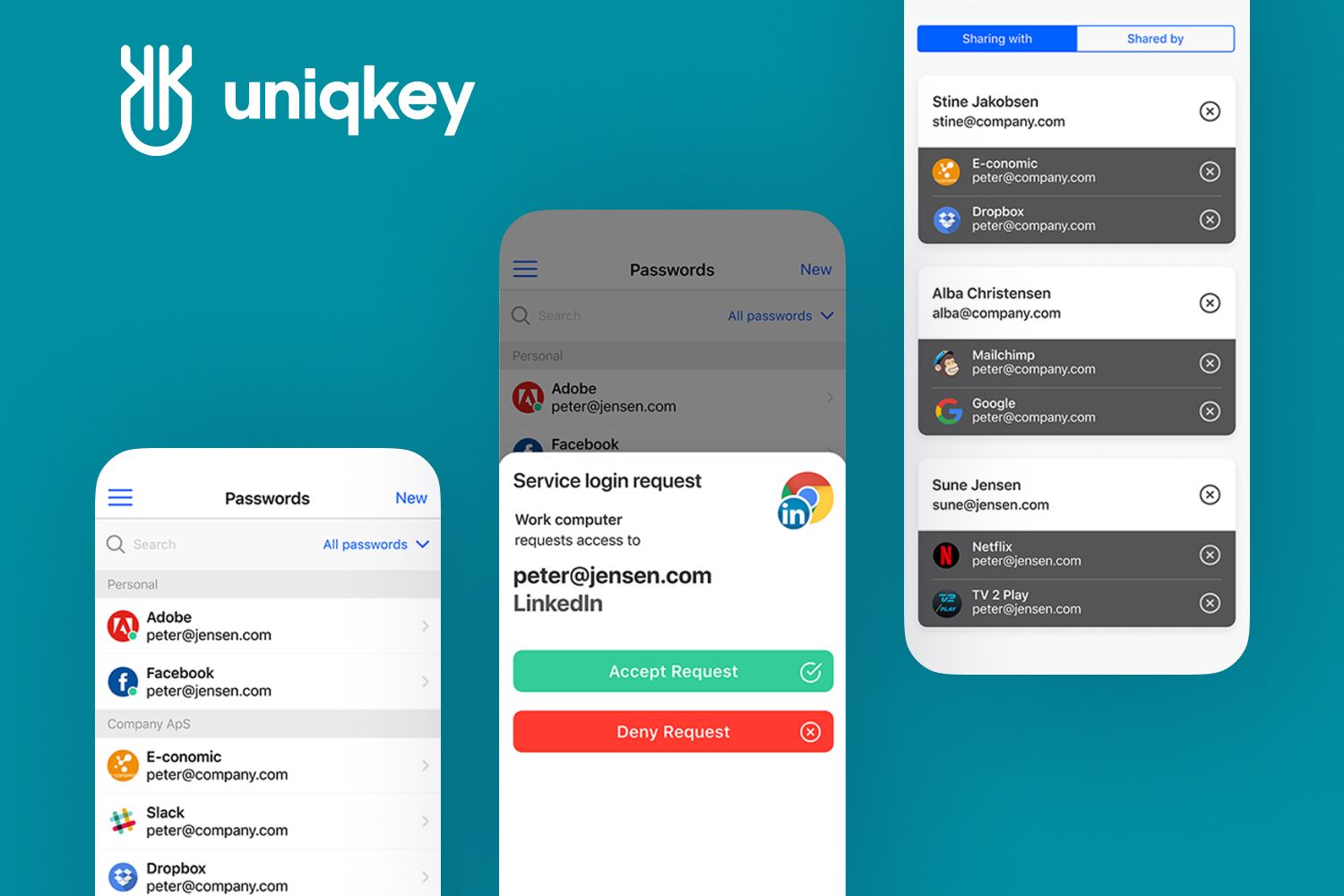
For this reason, one of the best SaaS tools for business is a password manager that can keep all the passwords and logins protected and stored in one place so as not to gobble up the brain’s or phone's memory.
5. SaaS Tools for Communication
If we need to find something that all companies have in common, it's communication. It’s the cornerstone of all business processes; hence, every business owner understands the need to have agile software products for information exchange.
A SaaS app for effective team communication is a good idea by itself, but building one empowered by a set of unique features and messaging options will certainly have a solid competitive advantage.
6. SaaS-based Project Management
The value of wise project management can’t be underestimated, given that workers need time and guidance to become a solid team. SaaS tools for project management can help businesses streamline the processes of collaboration and communication, as, besides other advantages, most of the tools can be accessed from various devices.
For project managers, such tools can become the magic stick for resource and project planning. Usually, project management enables the insertion of customized features based on the business needs of a particular company. It can be a dashboard, clear schedules, or notifications about task status.
7. KPI Tracking Tool
The performance of workers is directly connected with the performance of the whole enterprise. This is why it should be constantly tracked to, as harsh as it may sound, weed out underperforming workers.
But KPI tracking tools are not only murder tools for meting out punishment for loafing employees. They are leveraged to reward top performers for their hard work or encourage competition among the employees. Still, you’d better make sure that it’s done in a healthy way, as too much competition can sabotage the entire workplace.
All these functionalities of SaaS KPI trackers can also serve freelancers, who, being their own bosses, praise and reprimand themselves... by themselves.
8. Conversion Rate Optimization (CRO)
This is definitely among the best micro saas ideas, as CRO tools are used to analyze users’ behavior on your website. Usually, business owners are presented with visually pleasing reports and diagrams.
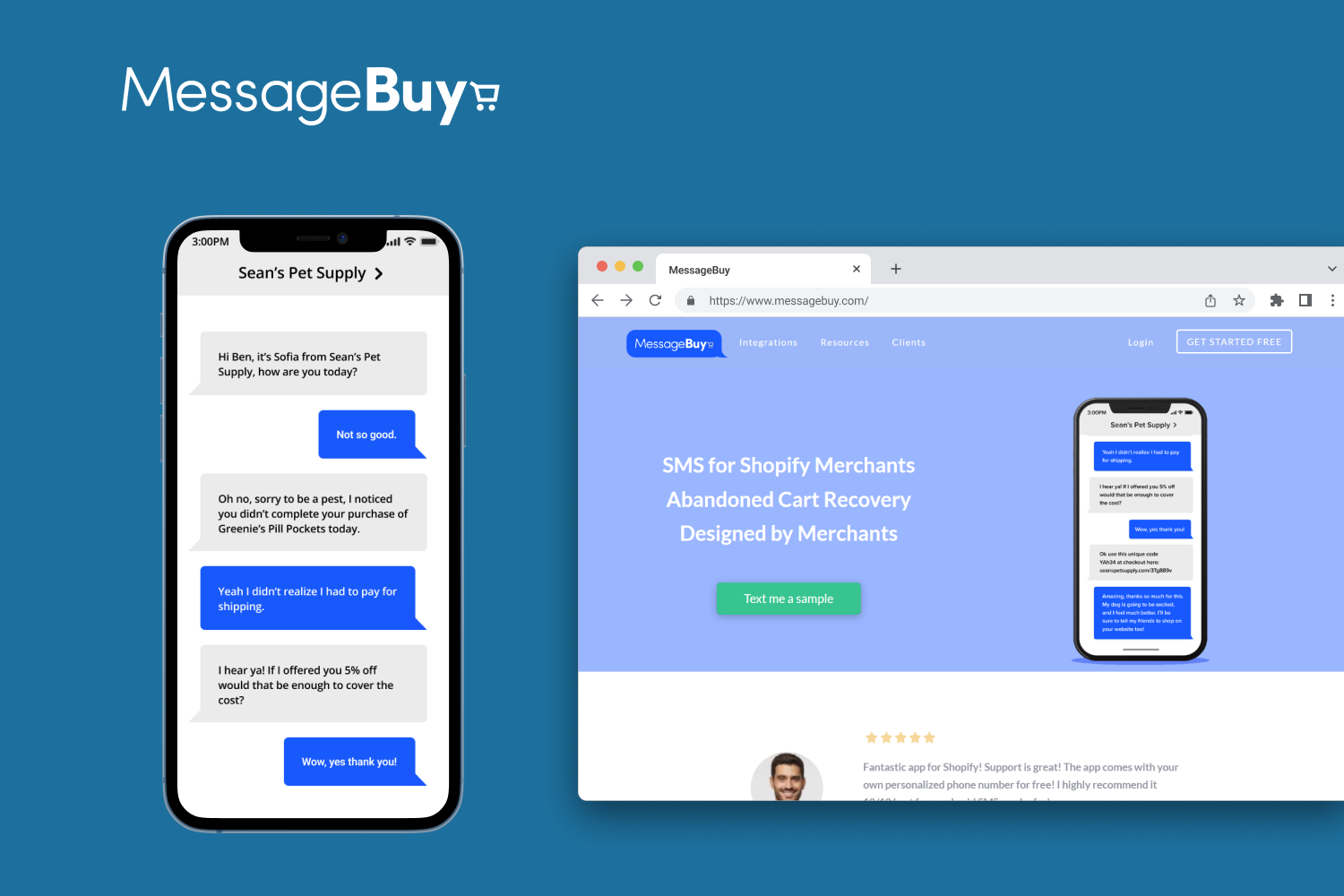
For instance, some CRO tools can show how a user interacts with an online shop step by step. Some can present the number of visits and the speed of loading.
9. Enterprise Resource Planning (ERP)
ERP is a web platform that encapsulates many apps and tools. Financial operations, projects, supply chain and risk management, analytics, and even procurement—all these can be tracked and automated via ERP.
In essence, ERP can embrace all activities inside one company, from marketing and accounting to human resources. Business owners often opt for this SaaS solution because it’s easily expandable, so additional features that would cover another business activity can be added as the business grows.
10. Content Management Tool
The battle for customers’ attention is intensifying, and one of the tried-and-true methods of winning the attention of clients is captivating content.

For this reason, SaaS tools for content management will be popular for years to come. A great micro SaaS idea can be a tool for editing and publishing content or one for producing SEO-optimized articles and blog posts.
11. Human Resources (HR) SaaS Tools
Another pillar of every successful venture is the satisfaction of employees. They need to be informed of all the recent updates pertinent to their position and properly trained.
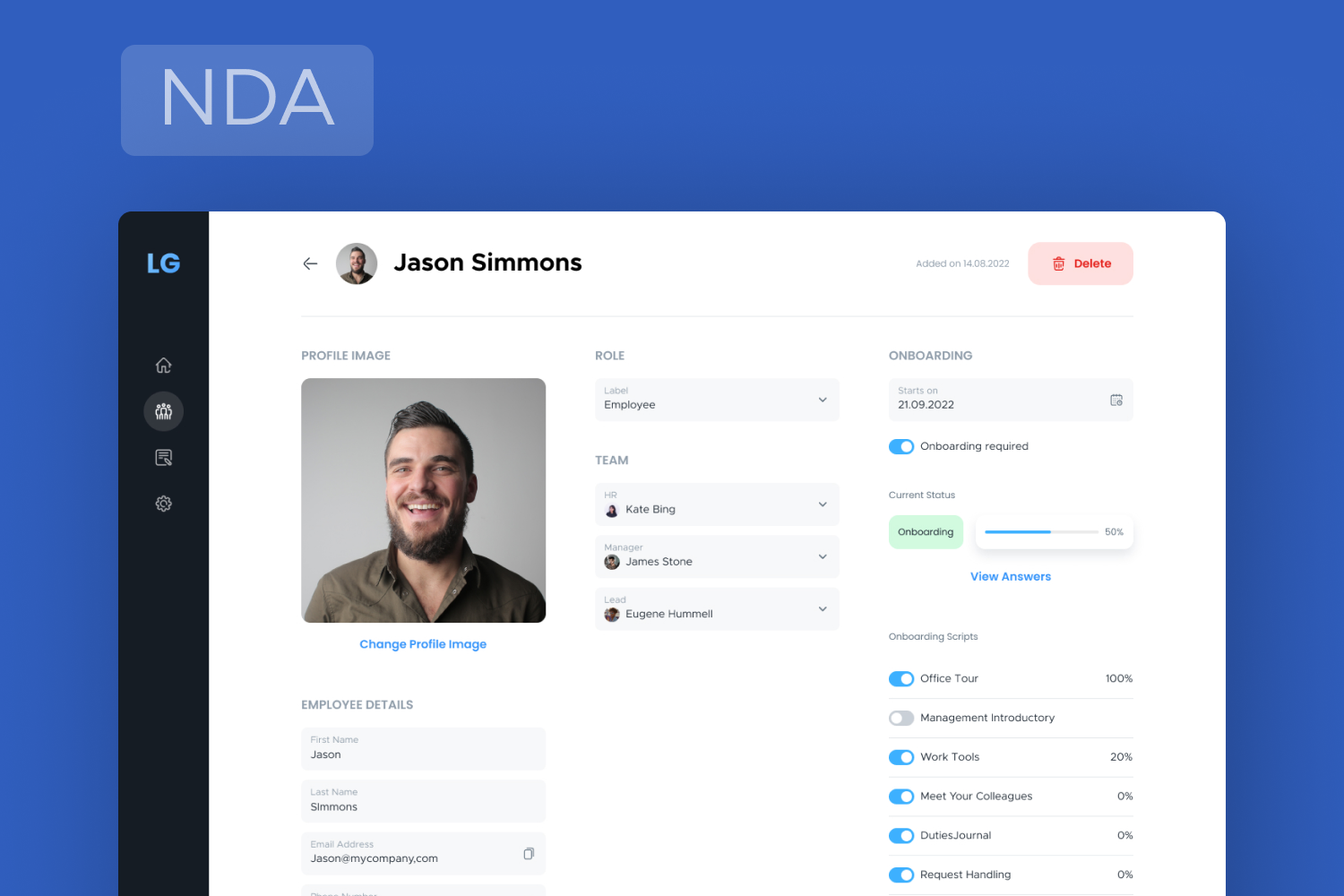
Most importantly, they need to be sure about their work and holiday schedules. SaaS for HR is built to effectively implement all these functions.
12. E-commerce SaaS Platform
Currently, it seems like every other person manufactures and sells a product. There is no use for newbies to e-commerce to build their own online shop from scratch, so most of them leverage customized platforms, and it’s in our saas ideas for 2025 top list.
One of the best examples of e-commerce SaaS solutions is Shopify. Basically, it allows a person to start selling their products immediately by providing each seller with the tools to compile their own e-commerce website and fill it with a set of ready-made features.
Marketplaces are extremely popular among individuals and businesses who want to sell their products fast and with minimum expenses. Taking into account that the number of online vendors will only continue to grow, building an online marketplace is another profitable e-commerce SaaS development idea.
13. SaaS Healthcare Application
Companies involved in the healthcare industry have always been in the vanguard of adopting new technology. Thus, the usage of SaaS in healthcare is not uncommon.
Of course, patients are the focus of attention in every clinic, which is why one of the most popular solutions are patient portals. Among the most innovative healthcare examples is SNAP.

It includes a patient portal that makes it possible to schedule appointments with doctors and remind patients about them. Moreover, SNAP makes it easier to manage medical records and automates the process of billing and other paperwork so that doctors can concentrate solely on patients’ treatment.
Actually, you can resort to SaaS web portal development even if your future business is not connected to healthcare but to any other industry. It can be, for example, education.
14. E-learning SaaS
Incessant education is one of the biggest trends. Every other day, a new set of skills emerges that people feel obliged to dive into or acquire at all costs. Today, almost everyone will learn programming languages or die trying. Tomorrow, a baking or jewelry-making craze may appear.
So, an e-learning platform is an excellent place to publish online classes and reap profit. They do not necessarily need to serve schools, but any company that deems it beneficial to share their knowledge and skills. Some business owners can jump at the opportunity to increase awareness about their services and products through online lessons. Some will genuinely enlighten people through high-quality content. Regardless of their purposes, your e-learning SaaS will aid them in the process.
15. Property Management SaaS Platforms
Remember the metaphor we’ve used above? The idea is applicable here as well, but now in its literal meaning. So many people are renting their apartments and have to deal with landlords, paying rent, utility bills, and documentation. Here, property management platforms come to help.
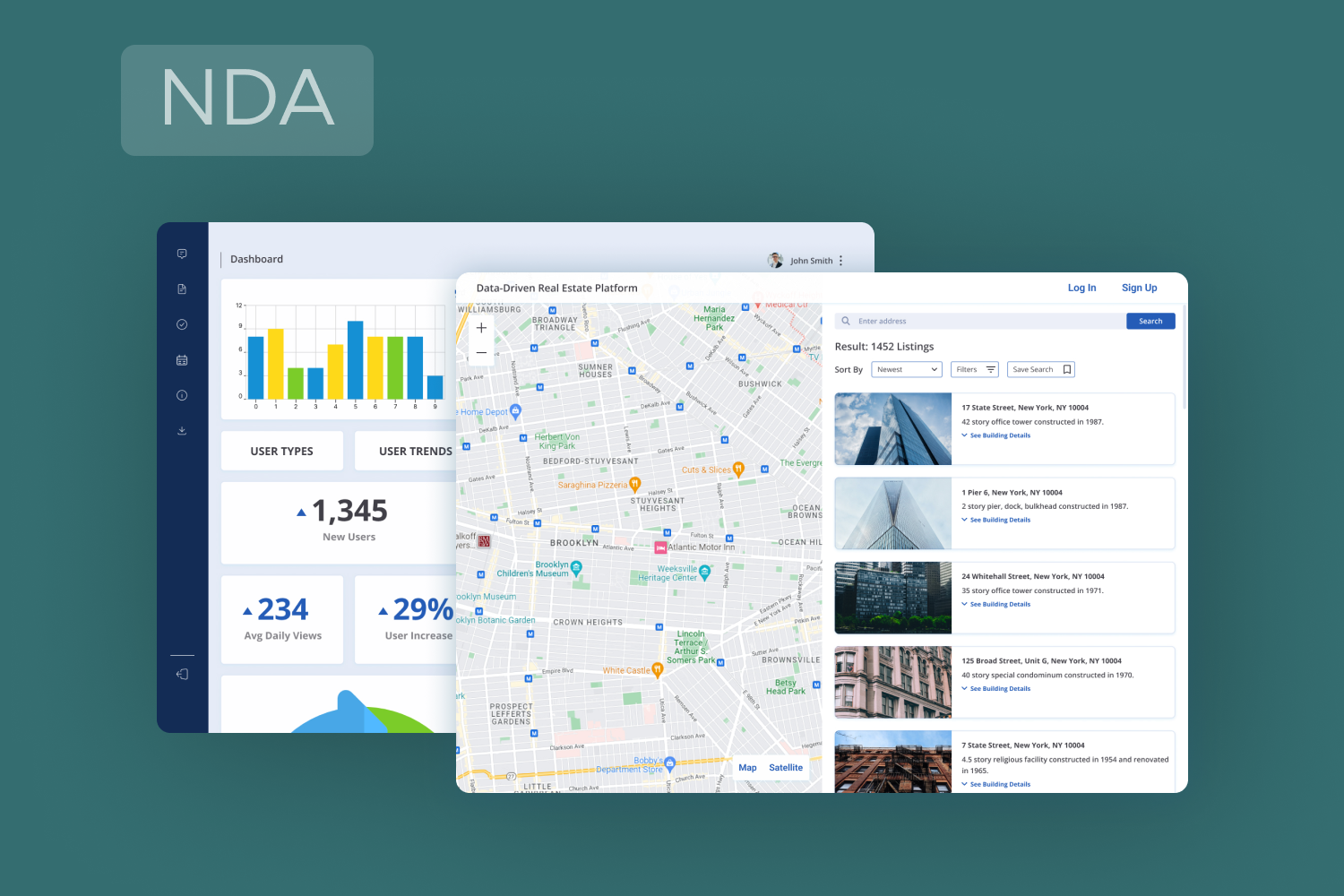
Modern property management platforms aim to automate payments and transactions through the integration of various accounting and payment gateway systems. They also alleviate landlords’ problems and allow them to view requests, and schedule meetings with prospective tenants, and some even provide them with a visual revenue dashboard.
We can't but notice that some real estate SaaS solutions allow you to track lights and cameras and even predict potential maintenance issues in a home. Wondering how it’s possible? The Internet of Things and Artificial Technology are to be praised for it.
How to Build a Micro SaaS Application
Building a Micro-SaaS product is a great way to develop a focused, scalable solution that solves a specific problem for a niche audience. Here’s a step-by-step guide to help you turn your idea into a successful business.
Identifying the Business Idea
The first step in building a product is identifying a clear, specific problem to solve. Unlike traditional SaaS, which often serves broader markets, Micro-SaaS focuses on solving highly targeted problems for a niche audience. To find the right idea:
- Research Market Gaps: Look for underserved areas within existing industries or problems that haven’t been efficiently addressed by current solutions.
- Focus on Specificity: Micro-SaaS thrives on providing a narrow focus. The more specific the problem, the better you can address it with your solution.
- Validate Your Idea: Before moving forward, get feedback from potential users. Use surveys, social media polls, or direct conversations to gauge interest and demand.
By the end of this phase, you should have a well-defined idea that solves a clear, pain-point in a niche market.
Creating an MVP
Once you’ve identified your idea, the next step is building a Minimum Viable Product (MVP). An MVP is a scaled-down version of your product that includes just the core features necessary to solve the problem at hand. This approach helps you test the product with real users before investing significant time and resources into development.
- Focus on Core Features: Prioritize the essential features that solve the problem. Avoid adding unnecessary functionalities that could complicate your MVP.
- Keep it Simple: The goal is not to build a fully-featured product but a simple, functional version that delivers value.
- Develop Iteratively: Start with a basic version and continuously improve it based on user feedback. Use agile methodologies to make frequent updates.
The MVP allows you to test your product with users and gather valuable insights that will help you improve it.
Testing the MVP
After building your MVP, the next crucial step is to test it. Testing ensures that your product works as intended and delivers the value you promised. This phase will provide valuable feedback that you can use to fine-tune the product.
- Beta Testing: Invite a small group of users from your target market to use the MVP. Provide them with clear instructions and ask for honest feedback.
- Collect Data: Track user interactions, pain points, and feature requests to understand how your users are engaging with your product.
- Refine the Product: Based on the feedback, refine your MVP to fix bugs, improve features, and ensure it addresses the problem more effectively.
The MVP testing phase helps you identify and fix issues before the official launch and ensures you are building a product that users actually need.
Launching the Product
Once your MVP has been tested, iterated on, and refined, it’s time to launch your Micro-SaaS product to the world. Launching is more than just making the product available; it’s about creating a plan to attract, convert, and retain customers.
- Create a Landing Page: Your landing page should clearly communicate the value of your product, its features, and the problem it solves. Include testimonials, a demo, or a free trial to attract potential users.
- Set Up a Marketing Plan: Use content marketing, SEO, social media, and paid ads to get the word out about your product. Target niche communities where your ideal customers are.
- Offer Early Adopter Benefits: Encourage early sign-ups with discounts or extended free trials. Early adopters are often more forgiving and offer valuable feedback for improvements.
- Monitor Feedback: After launching, keep a close eye on user feedback and behavior to quickly address any issues and continue improving the product.
By the end of this phase, you’ll have launched your product, gained your first users, and set the foundation for growth.
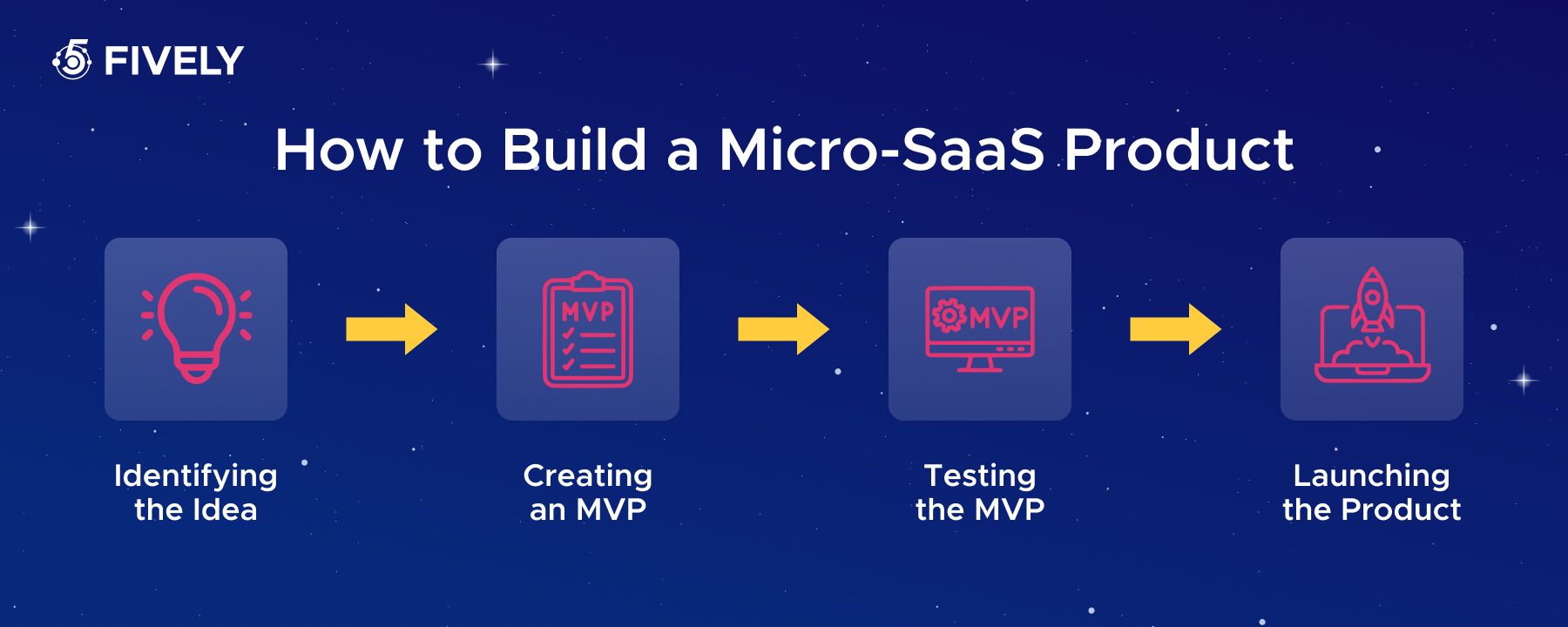
By following these steps, you can successfully develop a scalable product that meets the needs of a niche audience. Stay agile, gather feedback, and keep improving your product to ensure long-term success.
How Do I Create a Micro-SaaS Business?
There are many starting points for a new micro-SaaS project. For example, you can take different modern SaaS product ideas and brainstorm with your team about what niches you can find and what smaller problems your solution can solve more effectively than an existing larger platform. You can also use our list of the best b2b saas ideas for 2025 we listed in this article.
We as a professional software development team can help you build a successful solution using our expertise in industries like eCommerce, Marketing, Cyber Security, FinTech, HealthTech, and more.
Would you like to discuss your idea with our SaaS development experts? Don’t hesitate to contact us right now!
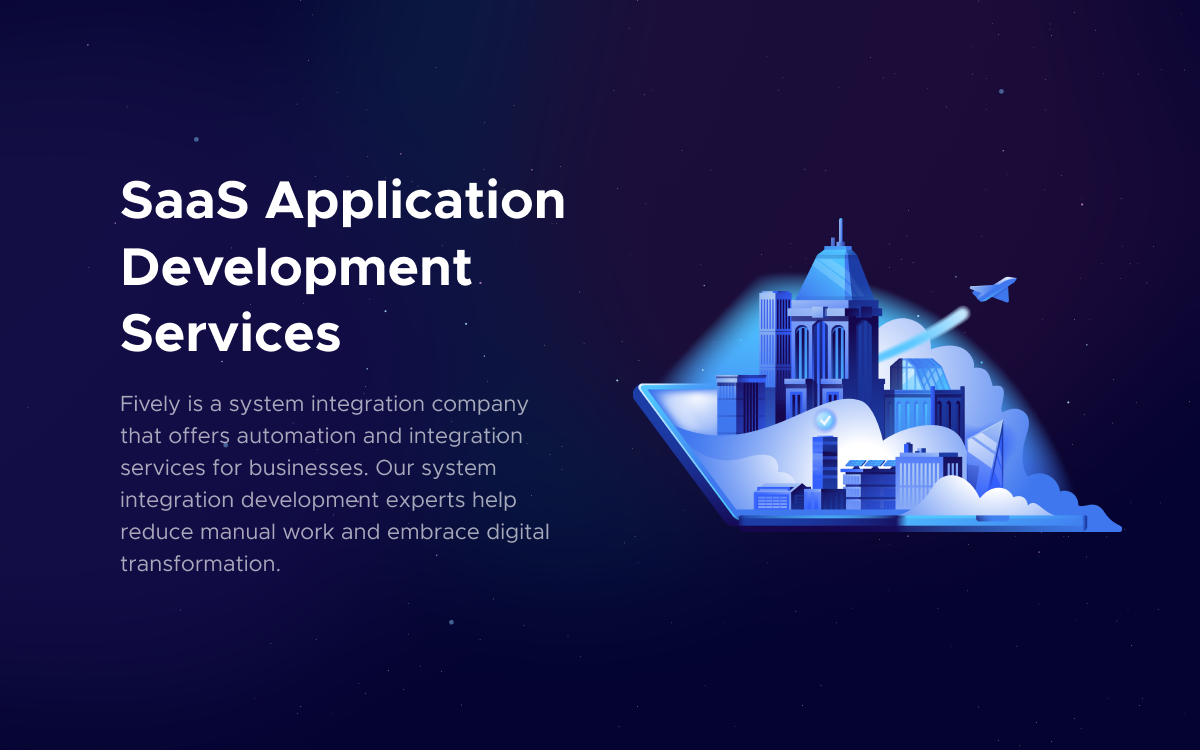
Need Help With A Project?
Drop us a line, let’s arrange a discussion




